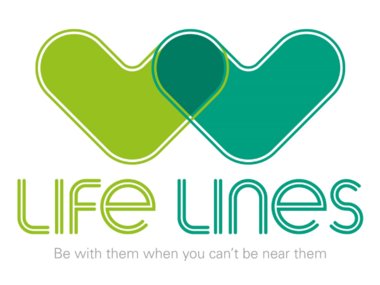12 August 2020
We explore some of the key things we have learnt from rapidly innovating a virtual visiting platform that enables families to connect with loved ones in intensive care.
The Life Lines project was established in March 2020 as part of King’s Health Partners rapid response to COVID-19. Life Lines offers virtual hospital visits connecting families with their loved ones in intensive care. The project was quickly implemented and rolled out across the UK. So far we have supported more than 150 NHS hospitals with over 1,200 tablets and 12-months of software and 4G connectivity. Less than five months on, we look at how far the project has come, and the key lessons we have learnt from such rapid innovation.
1. Mobilising a small team with big ambition
The Life Lines project founders, Prof Louise Rose and Dr Joel Meyer, set out to reduce the psychological burden for families and their relatives in intensive care units (ICUs) due to visiting restrictions as a consequence of the coronavirus pandemic. Their solution? Making virtual hospital visits possible in ICUs across the UK.
To support the national implementation, a King’s Health Partners team was rapidly created bringing together expertise in project management, programme delivery, administration and communications. A core team of six was established to support and scale up the project, with three staff redeployed from existing roles temporarily and one recruited specifically for this project.
In under a week, testing of virtual visiting platform aTouchAway began in intensive care units, and the first official call was made to the partner of an intubated patient on the 25 March 2020.
You can see the project's prorgress in the first two weeks in the timeline below.
Since then, the aim has been to deliver the capability of virtual visiting to as many NHS organisations as possible, and to support clinical teams and families to do so. Life Lines has now provided support to over 150 ICUs in the space of five months, from the Isle of Wight to the Orkney Islands.
2. Getting to grips with a new and developing platform
Ease-of-use and security were top priorities when testing potential software for this project.
It was vital that the platform could guarantee security for patients in ICU and for their families engaging in virtual visits. This provided a level of comfort for staff and families and was also important in overcoming the barriers of differing IT restrictions at NHS organisations. The level of security also set aTouchAway apart from other video calling apps.
Finding a user-friendly solution was also important due to the extremely busy nature of working environments for clinical staff in ICUs. With the pandemic developing so rapidly, staff needed to learn how to operate Life Lines devices, fast.
Using a straightforward application for the service was also essential. Doing so made sure virtual visits were available to as many families as possible, taking into consideration the varying technical ability of users and phone or tablet devices.
With these priorities in mind, Aetonix provided the ideal solution: aTouchAway. The platform was already being used in clinical settings and, with a few modifications, became a secure, password-protected app, providing each NHS organisation with a digitally secure dashboard to start enrolling patients.
3. Empowering staff and families to engage
After a little over a month, Life Lines successfully delivered just under 1,000 tablets to ICUs across the UK, but the project was far from completed. Our team needed to make sure clinical care staff were making the most of these tablets, and families were being given the opportunity to experience a virtual visit.
To encourage this uptake and continued use, we have provided on-hand email support, an e-learning course, and written resources for clinical teams and families. This gives our users the help they need to confidently use aTouchAway and make the most of virtual visits.
4. Making continual improvements
Throughout the evolution on the project, we have taken on board input from those using Life Lines, welcoming feedback and making adjustments that ensure the experience is as seamless as possible for clinical teams and families. We have carried out evaluations with clinical teams to share and develop best practice and are forming a clinical champions network to support this.
We are currently conducting a national survey to gain insight from trusts on their virtual visiting experience during COVID-19. The learnings from this survey will feed into further strategy for Life Lines.
As the project develops, to recognise the everchanging situation with COVID-19 in the UK, we continue to improve our service and support so that more families across the UK can experience virtual visits with their loved ones.
Learn more about the Life Lines project and how your NHS organisation can get involved.
Want to learn more about the impact of Life Lines in its first few months? Read our recent update on the project and how many families we have helped connect.





